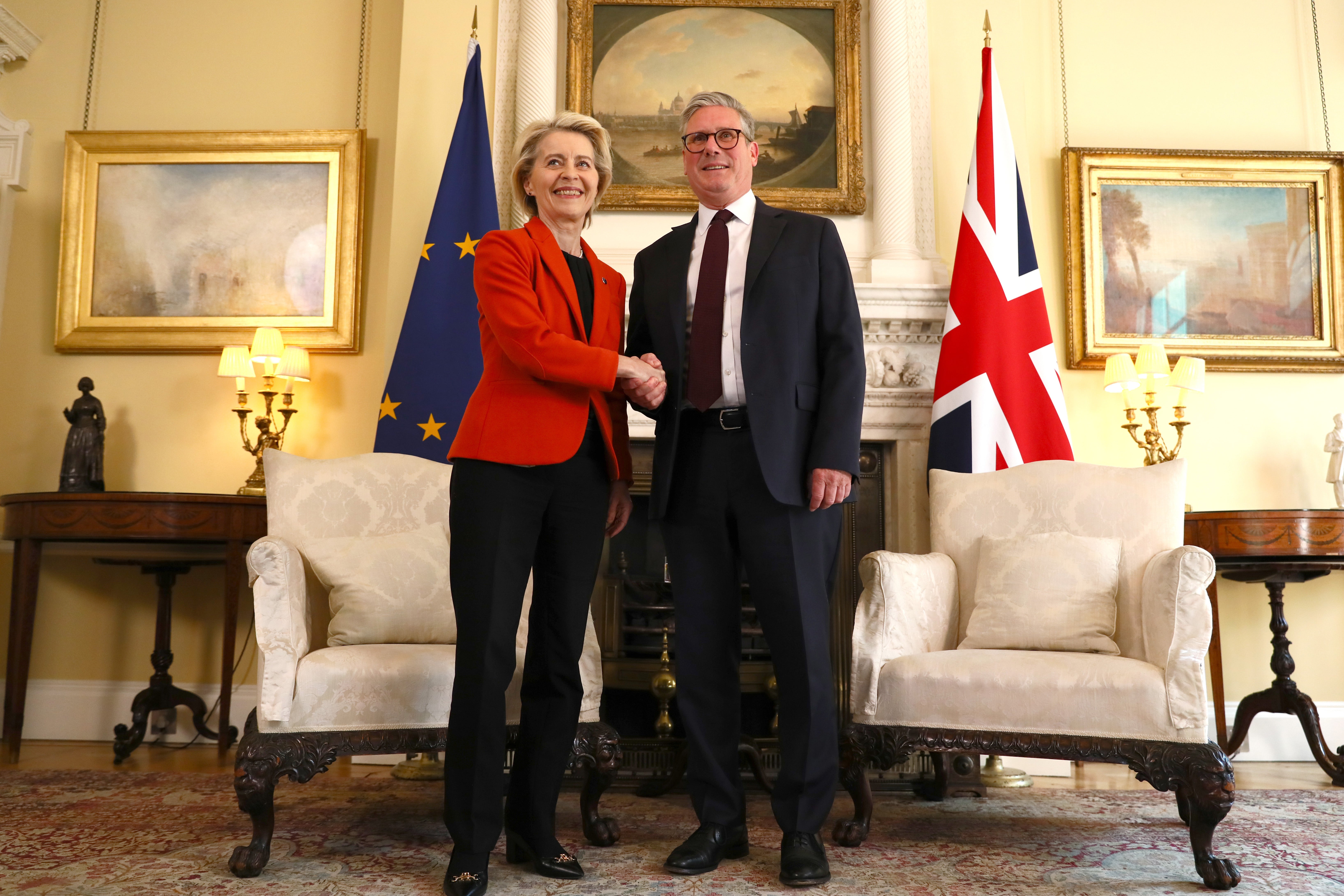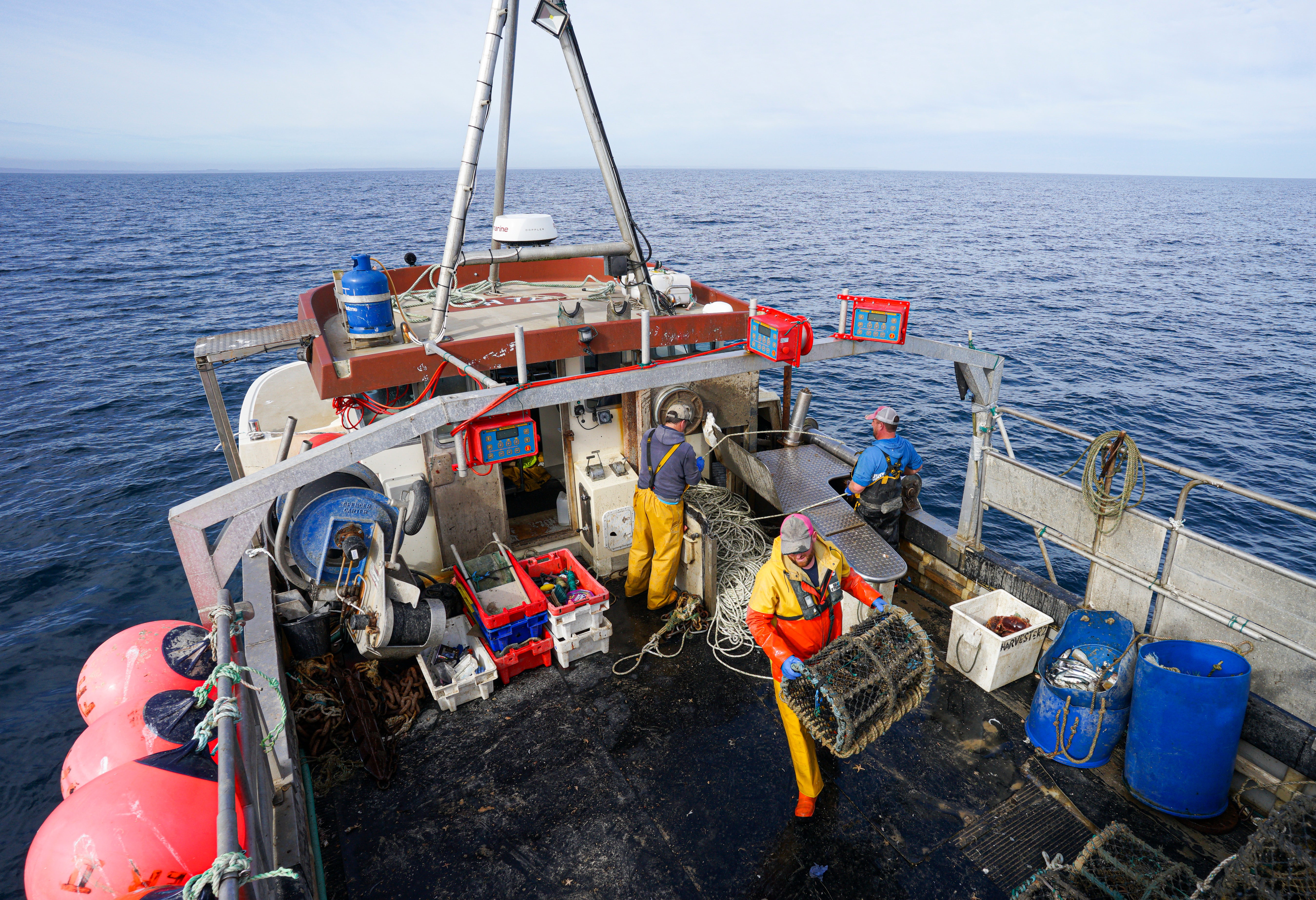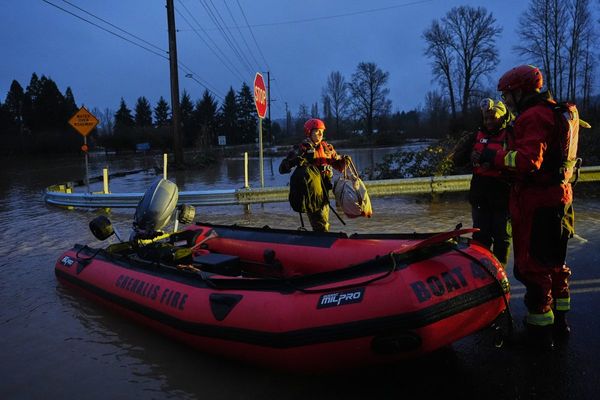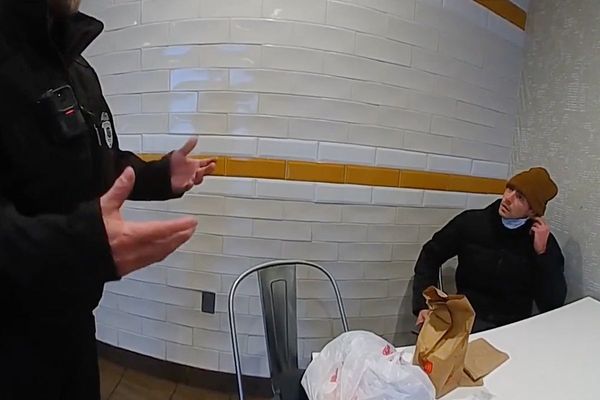Sir Keir Starmer is facing one of the biggest days of his premiership with just hours to go until he is expected to unveil his plans for Britain’s post-Brexit reset deal towards closer ties with the EU.
Although officials were still locked in negotiations on Sunday night - in a last ditch attempt to get a deal over the line - the prime minister is said to have agreed a deal to rebuild ties with the bloc after years of tension and mistrust under the Conservatives.
Sir Keir - who has made the Brexit reset a centrepiece of his administration - will stand side-by-side with EU leaders at midday today and unveil the key details of what has been agreed. Facing questions from the media, the prime minister will be judged on how successful his mission to reset relations with the EU has really been.

While today’s summit is being seen more as a jumping off point for further negotiations, with both sides agreeing in principle where they would like closer ties, the prime minister will be keen to show that progress has been made.
Some issues have proven thornier than others, with the issue of fishing rights understood to have been a key stumbling bloc for negotiators that was only solved in the early hours of the morning. Meanwhile, talks surrounding the use of e-gates at airports, a possible youth mobility scheme and closer trade ties on agricultural products are thought to have continued into the morning on Monday.
With just hours to go until the full details are revealed,The Independent looks at what issues are on the table.
Youth mobility scheme
The biggest thing on the agenda is likely to be the announcement of a planned youth visa scheme - which would let under-30s study, live and work between Britain and the continent for a number of years.
Exactly how many years, and what number the scheme is capped at, will prove controversial, with the Home Office pushing back on measures that will boost spiralling migration figures the government is desperately trying to cut.

But the scheme has been a key ask of European countries, who believe it will benefit both sides, and is being seen as a test of how serious Sir Keir is about resetting ties after years of acrimony under the Conservatives.
Defence and security
Both Britain and Brussels have expressed an interest in strengthening cooperation on defence and security.

A pact would allow British firms to access a major European defence fund - under which EU countries will spend 150bn euros buying air defence systems, drones and other military equipment - set up in response to US President Donald Trump’s apparent reluctance to guarantee the continent’s security.
It would build on a bilateral pact struck between the UK and Germany, under which the Luftwaffe is operating from a base.
Fishing
There are reports that some EU countries, including France, want to link wider talks - including around a defence pact - to fishing in a bid to pressure Britain into agreeing a deal.
France and other European countries are seeking continued access to British fishing waters after June 2026, rather than having to renegotiate quotas every year.
The fishing industry is relatively small in the context of the post-Brexit reset, but has taken on outsized influence in talks.

Europe minister Nick Thomas-Symonds hinted Britain was prepared to move towards the EU’s position and allow ongoing access.
Downing Street pointed out that European fishers will already have access to British waters under the current deal beyond 2026, hinting that the terms of access are up for renegotiation in the reset. But the PM’s official spokesman has stressed British fishermen would be protected.
Food standards
One of Labour’s manifesto pledges was to strike a veterinary agreement to cut unnecessary border checks and bring down the cost of food for British consumers.
The promised agreement on food and agricultural standards, or sanitary and phytosanitary (SPS) agreement, would see Britain agree to European food rules in order to reduce red tape for exporters and cut checks on food between Great Britain and Northern Ireland.
European trade commissioner Maroš Šefčovič has said an SPS agreement would require Britain accepting dynamic alignment with EU rules - likely to spark uproar among Brexiteers.
Easing some trade barriers
Removing trade barriers on goods, including food and drink and electrical items, could result in a 2.2 per cent uplift in gross domestic product in the long run, boosting the economic growth the prime minister so desperately wants to deliver by nearly £25bn a year, according to analysis shared exclusively with The Independent.
From the £24.8bn export boost for the UK estimated by Frontier Economics, in a report commissioned by pro-EU group Best for Britain, farm food exports alone could see a £3.2bn increase.
The EU, meanwhile, would also benefit, with a £22.4bn boost to exports in goods and services from a closer agreement, selling £5bn more in agricultural products.
And a separate assessment by the National Institute for Economic and Social Research (NIESR) warns that a failure to land a deal for easier trading could lead to a 2.7 per cent drop in exports by 2027, costing the UK economy almost £30bn.
Migration
The UK-EU summit will also see both sides discuss migration, with Britain hoping Europe will help Sir Keir’s ambition of tackling the people smuggling gangs transporting migrants across the English Channel.
One way the EU could help would be agreeing a returns deal with Britain, whereby migrants who arrive in the UK could be returned to France or the continent, with the UK resettling migrants from the EU in return.
Labour also hopes to gain access to European crime and illegal migration data to go after the gangs, though suffered a blow when this was reportedly rejected by the EU.
Touring artists
Labour also promised at the election to help touring artists, whose lives have been blighted by Brexit, access the continent more easily.
They can currently only work for 90 out of every 180 days on the continent, making longer tours more difficult, while prohibitive amounts of paperwork and transport issues has made it more time-consuming and less profitable.

But EU experts have said a deal to ease restrictions on touring artists could be thornier as it would require a state-by-state rewrite of customs rules around how artists travel between countries.
Passport queues
British tourists arriving in Europe could be able to use EU passport gates at airports once again under Sir Keir’s reset deal.
The UK’s lead negotiator and EU minister Nick Thomas-Symonds said the government was pushing for measures to speed up the process, saying it would give people “more time to spend on holiday or work trips… doing what you want, not being stuck in queues”.
Mutual recognition
Campaigners have consistently called for the mutual recognition of qualifications between the UK and EU, and Labour’s manifesto promised to deliver it.
It would allow professionals qualified in the UK to practice in the EU and vice versa, without having to requalify and with minimal additional bureaucracy. It is not known which jobs could benefit but the Law Society has already hailed the opportunity for UK lawyers to learn and practice in the EU, while others that could be covered could include accountants and architects.
The existing Trade and Cooperation Agreement (TCA), which underpins Britain’s post-Brexit trading relationship with the EU, allows for mutual recognition deals to be negotiated sector by sector, so negotiators could settle on this as an initial approach, in what would be a boost for firms in Britain’s key services sector.
Energy cooperation
The government is also looking at linking Britain and the EU’s emissions trading systems, under which companies can buy and sell permits for their level of carbon emissions.
Economists have said that linking the two schemes would expand the liquidity of permits being traded in both and boost the net zero transmission.
It could also avoid fresh border friction if the EU imposed a tax on carbon-intensive imports such as steel, cement and fertiliser, which MPs had raised concerns about.
What is not in Sir Keir’s plans?
Labour has repeatedly stressed its red lines throughout talks with Britain’s European counterparts.
There will be no return to the European single market, under which goods can be traded freely between countries in the bloc, the customs union, which standardises tariffs for non-member countries, or freedom of movement, under which people were allowed to travel and live across member states. The red lines are Labour’s bid to head off allegations that the party is seeking to betray Brexit.
What will critics say?
Regardless of the red lines, the Brexit reset is likely to spark a fresh round of criticism for the PM, with Reform UK and the Conservatives already accusing him of unpicking Brexit.

It comes after the PM stressed the need to slash net migration - even taking on his own party over the issue. And the final shape of any youth mobility scheme will be a prime target for political attacks on Labour and Sir Keir.
Any acceptance of dynamic alignment with EU rules will also see Sir Keir facing allegations he has allowed Britain to again become a “rule taker” not a “rule maker”, a key argument for Brexit in the referendum.
Thailand and Indonesia announce strategic partnership, vow to boost economic and defense ties
Landmark UK-EU Brexit reset deal secured ahead of Starmer’s London summit: Live
Starmer strikes post-Brexit reset deal with EU
Ukraine latest: Trump to push Putin to end Ukraine ‘bloodbath’ in call
Cyber attack on Legal Aid Agency exposed ‘significant amount’ of applicant data
How your political leanings can impact your success on dating apps







